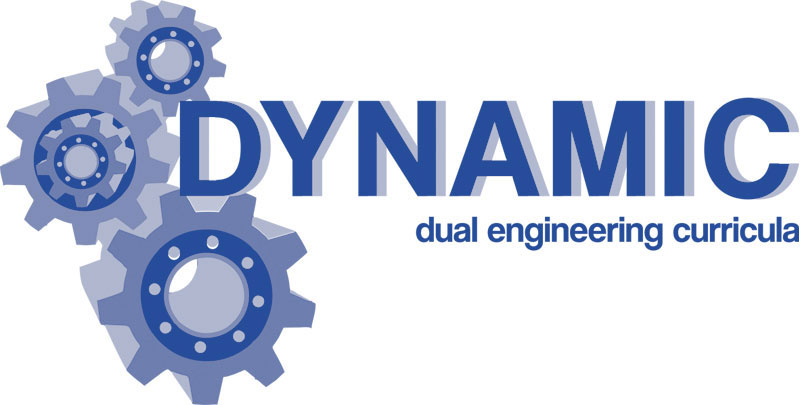Work packages (WP) / Deliverables (D)
D.2.1 Meeting report Transnational stakeholder workshop:
D 2.2 Three consolidated focus group reports with module description of the practical phases:
- LBUS_focus_group_report
- PTP_focus_group_report
- RO_BG_HR_consolidated_focus_group_report
- TUV_focus_group_report
D 2.3 Contractual templates in national languages
D.3.1 Flowchart of processes in dual HE programmes, including guidleines and working procedures for the development of practical content
D 3.2 Toolkit of templates and checklist for documentation and assessment of the practical phases
D3.3 Costumised Toolkit
D.4.1 Inventory of the country-specific and legal requirements
D4.3.1 Transnational training report
D4.4 Promotional videos
D5.1 Implementation Report LBUS
D5.2 Implementation Report TUV
D5.3 Implementation Report UNIPU
D.6.1 Evaluation plan
D6.4 External project evaluation
Published in February 2021
As part of the DYNAMIC project, external evaluators have assessed the dual education pilot programmes run by DYNAMIC over the past years. Below is a link and the report’s conclusions are below.
Conclusions
All participating universities have mentioned that in the niche sectors where their educational programmes are adjusted, there is a lack of professionals in the sector. At the same time, it is well known that students who study in conventional universities, in regular programmes, usually cite that theoretically they have the knowledge but lack the practical part; or even sometimes that the knowledge acquired at university is obsolete by the time they reach the industrial world. There is a German survey that it takes about one year of investment for a company that an alumni of the traditional university system is able to be perform in the expected position as he has to orientate in the industrial environment. The performance of a dual educated starts with the first day aIer his graduation as he is well introduced parallel to his academic education to the industrial demands.
Most of the time, the pace of industrial progress in companies is faster than the pace of change that a university can keep up with. Because of this, the latest developments and techniques are often found earlier in the industrial world and it is essential to have access to them during your studies in order to get a good education. The impact of the dual model on the employability of recent graduates has not been mentioned. Analysing the implementation of the pilot programmes, no comparison can be made in this respect. But it is to be expected that with an early approach to the industrial world, more people will find employment in the companies they have been in during their training periods.
D6.5 Guidelines for design and implementation of dual practice integrated higher education engineering programmes in the national context of Bulgaria, Croatia and Romania:
D.7.1. Dissemination & Exploitation Strategy
D 7.2 project identity
D7.3.2 E-newsletter
- Dynamic-Newsletter-1
- Dynamic-Newsletter-2
- Dynamic-Newsletter-3
- Dynamic-Newsletter-4
- Dynamic-Newsletter-5
D7.4 Conference proceeding from two project dissemination conferences
D7.7.1 Project leaflet
D7.7.3 Final project brochure
